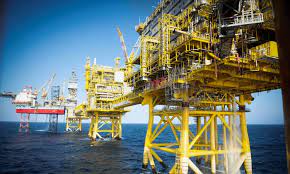To address a cost-of-living crisis that has left families and businesses across the U.K. facing a harsh winter, British Prime Minister Liz Truss announced on Thursday that her government will cap domestic energy rates for households and businesses.
In an effort to improve the U.K.’s domestic energy supply, she also declared that she would permit additional North Sea oil drilling and overturn a restriction on fracking.
Truss addressed members in the House of Commons, “We are assisting this country through this winter and next and attacking the core causes of high costs so we are never in the same position again.”
According to Truss, the two-year “energy price guarantee” ensures that typical home costs for electricity and heating won’t exceed 2,500 pounds ($2,872) each year.
Bills were expected to quadruple in price starting in October, to 3,500 pounds ($4,000) per year. Due to the invasion of Ukraine by Russia, as well as the economic repercussions of COVID-19 and Brexit, bills are increasing.
Hospitals, schools, and other public institutions will also receive funding, albeit for a shorter period of time—six months rather than two years.
According to the government, the cap will reduce the United Kingdom’s skyrocketing inflation rate by 4 to 5 percentage points. 10.1% was the inflation rate in July, and it is expected to reach 13% before the year is over.
The actions represent a significant economic government intrusion by a leader who identifies as a small-state, free-market conservative. Truss claims she prefers tax cuts over handouts, but the severity of the issue has compelled her to take action.
The cost of the price cap has not been disclosed by the government, but estimates place it at more than 100 billion pounds ($116 billion). Truss has rebuffed suggestions from the opposition to levy a windfall tax on the earnings of energy firms. The cap will be paid for by borrowing and Treasury funds.
According to the opposition Labour Party, this means that British taxpayers will be on the hook for the cost.
The bill will be paid for by working people, not oil multinationals, who are expected to generate 170 billion pounds ($195 billion) in windfall profits over the next two years as a result of rising prices, according to Labour leader Keir Starmer.
On Truss’ second full day in office, the statement was made. Throughout the summer, the government remained mum regarding its plans. After announcing his resignation in July, the former Prime Minister Boris Johnson found himself unable to make significant choices. Before taking office, Truss, who won the Conservative Party leadership race to succeed Johnson, chose not to make any announcements.
The invasion of Ukraine has generated an energy crisis across Europe. The continent relied on inexpensive natural gas for years to power companies, provide electricity, and heat homes, but Russia has cut off those supplies.
The majority of the natural gas that Britain buys comes from Norway, not Russia, making it susceptible to changes in international prices.
“Vladimir Putin’s horrifying war in Ukraine is the reason we are in this precarious situation, “added Truss.” However, in order to avoid a repeat of this catastrophe, we must ensure that our energy supplies are more robust and safe.
Truss stated that Britain would increase its use of all domestic energy sources and announced the creation of a new “energy supply task force” that will negotiate long-term energy contracts with domestic and foreign suppliers. The quantity of energy produced by wind in the U.K. has significantly increased recently, and it has plans to construct new nuclear power plants.
Additionally, Truss declared that she would lift a British ban on fracking and award more than 100 additional permits for drilling in the North Sea. Environmentalists will oppose both proposals because they fear Truss will abandon the United Kingdom’s legally-binding pledge to reduce carbon emissions to zero by the year 2050.
In November 2019, Britain suspended fracking because it was impossible to forecast earthquakes brought on by the drilling.
Truss asserts that while she supports the net zero goal, it shouldn’t come at a significant expense to individuals and companies.

















